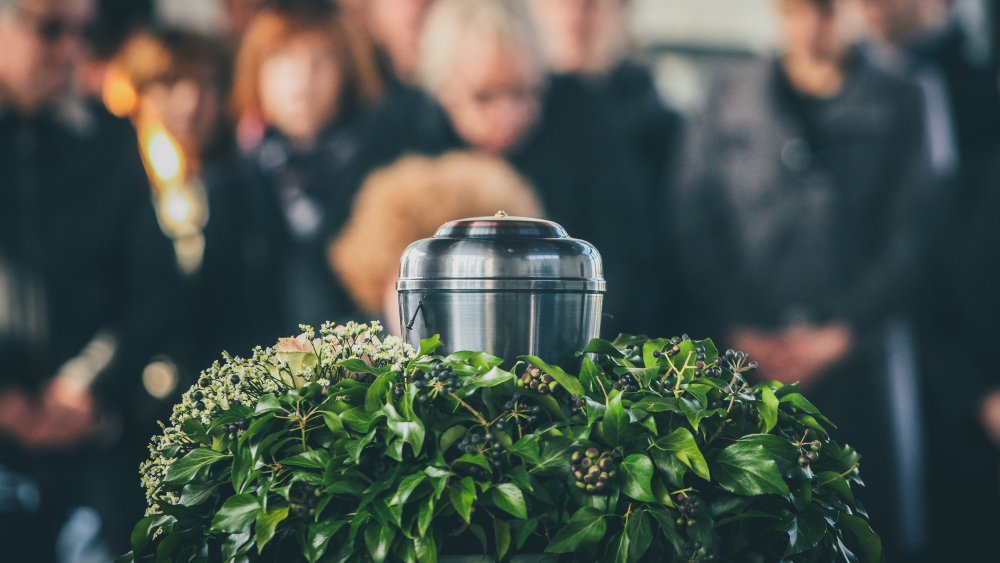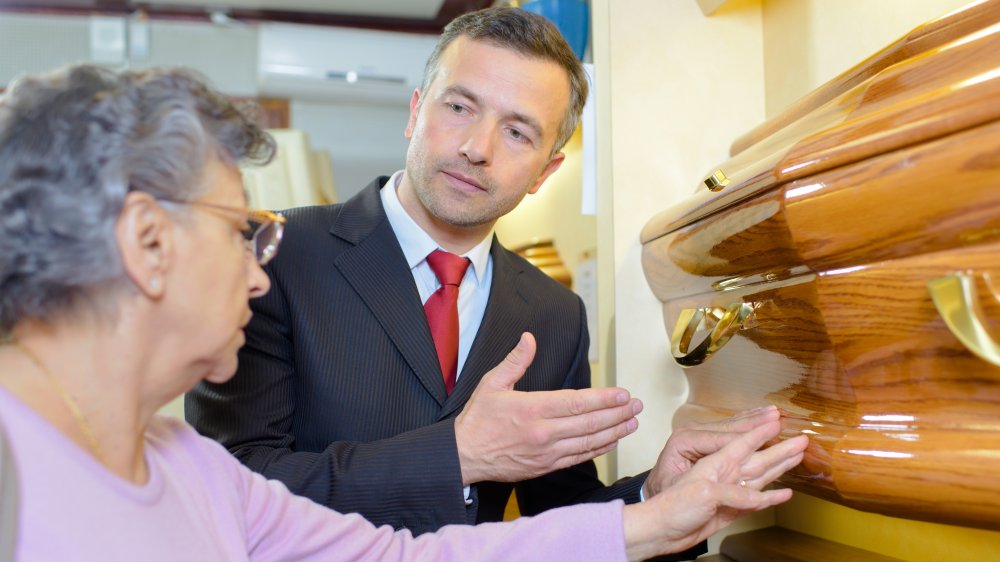What It's Really Like Being A Funeral Director
You might already have a vague idea of what a funeral director does. They're the people who meet with you and help set up services for the deceased. There's much more to it, however, as Career Explorer tells us — arranging transport for the bodies, dealing with legal documents, preparing the bodies ready for their big day, and all of the managerial stuff that goes along with running the business that is a funeral home or crematorium.
Then there are the emotional, educational, or lifestyle aspects that come with the territory. Funeral directors console the living as well as tend to the dead. In a way, their lives are stuck between this world and the hereafter.
The job isn't always a sad, depressing line of work. People die. Other people deal with those deaths. That's not saying there aren't times that would sadden the sturdiest of funeral directors. Children die. Lives are taken as the result of extreme tragedies. Some deaths are regarded as avoidable. Survivors are mourning. Believe it or not, there are also, from time to time, lighter moments in the life of a funeral director. One funeral director discussed experiences on the job with Cosmopolitan, and said that families can make the job enjoyable, if not outright hilarious.
The job isn't as sad as you'd think
She talked about how the families of funny, yet quite deceased, individuals will keep that spirit alive throughout the service — cracking jokes, bantering in a loving way, or making odd, comical requests. Not every culture finds death to be a sad thing at all, and those who gather to celebrate a life rather than mourn a death can change the whole feel of the occasion and of the job.
Being a funeral director is being a jack of all trades, not only those pertaining to death but many pertaining to life as well. In order to become a funeral director, you have to have an Associate or Bachelor's degree in Funeral Education Services, according to Fine Mortuary College. Next comes an apprenticeship of between one to three years, followed by a board examination. There's definitely some learnin' to be done.
Funeral directors have to be well-versed in mortuary sciences and able to tend to bodies, which often means embalming. That process often involves artistic elements, says Cosmopolitan – making the body look its best. If there are wounds, you reconstruct so they're not visible. The bodies must be dressed, scented, and made up to look as natural and beautiful as possible. A funeral home is also a business. The director has to know how to make a profit. That's not where the skills stop, either. Directors deal with the legal paperwork while consoling the loved ones of the deceased. Empathy and confidence are musts.
The hours can be hell and so can the customers
Do you like sleep? Hate customer service? If you answered "yes" to either of those questions, you're not cut out to be a funeral director. Funerals happen every day of the week, with the potential for multiple funerals in a day. Chances are, you aren't getting weekends off, according to Career Explorer. Same goes for dead bodies. They don't care what time of day or night it is. They don't care if you have plans. People are going to die, and it's your place they're going to.
There are changes in this line of work as in any other. For instance, in the last few years, cremation has overtaken traditional burial, reports Time Magazine. More recently, we've seen the rise of composting human remains.
It's pretty crucial that funeral directors have superb customer service skills. It's a big chunk of the job. You're consoling people in mourning and, sometimes, that can go awry. Anger is one of the five phases of grief, so stuff happens you wouldn't expect. People can be irritable, yell, scream. They've even been known to get into fistfights in the middle of the funeral home, as related on the Funeral One Blog. It takes a pretty special type of person to become a funeral director. Odds are, eventually, you'll deal with one yourself.


